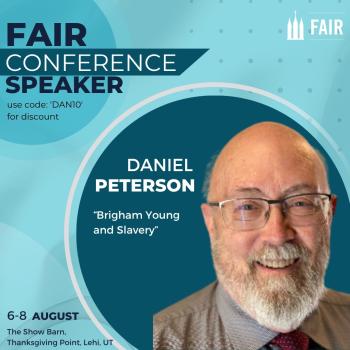 In the book Fire From Heaven: Life in an English Town in the Seventeenth Century, the late Yale historian David Underdown tells a story of how the Puritans of Dorchester adopted an unusual tactic to assist the town's poor: they opened a brewery. As in many English towns of the 17th century, problems of overcrowding led many residents and their children to the edge of destitution. But the Puritans' vision of salvation was holistic: the godly would demonstrate their souls' transformation by God in good works. They would not allow their fellow families to go hungry while they had the means to do something about it. So they opened the brewhouse, using proceeds from beer sales to bring poor children to school, instruct them in the faith and in useful vocations, and give them clothes and food. The brewhouse was a wonderful success, and significantly helped to alleviate the problem of poverty in Dorchester.
In the book Fire From Heaven: Life in an English Town in the Seventeenth Century, the late Yale historian David Underdown tells a story of how the Puritans of Dorchester adopted an unusual tactic to assist the town's poor: they opened a brewery. As in many English towns of the 17th century, problems of overcrowding led many residents and their children to the edge of destitution. But the Puritans' vision of salvation was holistic: the godly would demonstrate their souls' transformation by God in good works. They would not allow their fellow families to go hungry while they had the means to do something about it. So they opened the brewhouse, using proceeds from beer sales to bring poor children to school, instruct them in the faith and in useful vocations, and give them clothes and food. The brewhouse was a wonderful success, and significantly helped to alleviate the problem of poverty in Dorchester.
Fast forward to 2011. Much has changed in some conservative Christians' view of alcohol. Far from being a tool of charity, or even a sign of God's favor, as it was to David in Psalm 104 (God brought forth "wine that maketh glad the heart of man"), many see alcohol as evil, in and of itself. Not a drop is to pass the lips of a believer.
As old-fashioned as this argument may sound to outsiders, Southern Baptists are at one another's throats about it yet again. (Readers should note that I am a Baptist.) Shortly after Christmas, when the Baptist State Convention of North Carolina proposed to "study" whether alcohol consumption could be permissible for church leaders, anti-alcohol Baptists erupted with indignation, insisting that teetotalism is an essential Baptist distinctive. Indeed, the Southern Baptist Convention in 2006 made "total opposition to the manufacturing, advertising, distributing, and consuming of alcoholic beverages" the official policy of the denomination.
Obviously the Puritans of Dorchester did not believe that Christians could not take a drink; no Puritans believed that, contrary to our stereotype of them as history's great killjoys. When did American Christians adopt a stance not just against drunkenness (which is clearly prohibited in scripture), but against drinking per se? The notion of total abstinence from alcohol emerged in the early 19th century, in the midst of new reform movements associated with the Second Great Awakening.
Teetotalism responded to a serious evil, alcohol abuse, which was more prevalent in antebellum America than it is today. Historians estimate that Americans probably drank about five gallons of alcohol per capita per year in those days, more than double today's rate. This was partly because alcoholic beverages were often safer and more nourishing than other options, such as unreliable water supplies. But the high demand also reflected a tendency among many Americans—men, in particular—to overindulge. Drunkenness and alcoholism produced its typical fruits, including domestic violence and poverty.
The temperance movement reacted to a real social and medical problem. We should not dismiss it as a product of Victorian prudishness. But then a focus on reducing alcohol abuse morphed into the conviction that it was a sin for any person to take a drink, period. This was a simpler approach, but it is not biblical.
Whatever teetotalers may say, they cannot get around the fact that Jesus turned water into wine, and that Paul told Timothy in 1 Timothy 5:23 to stop drinking water alone, but to use wine to help his stomach ailments. (Teetotalers will respond that these beverages had very low alcohol content, an assertion not revealed in scripture, either.) A strict ban on alcohol for all Christians is a position of recent vintage (pun intended), with almost no precedent in church history before the 1800s.
Of course, nothing would prevent any Christian, as a matter of conscience, from voluntarily abstaining. There are good reasons to do this: a history of alcoholism in one's family, a wish to maintain one's reputation before others who might object to drinking, or a simple distaste for alcoholic drinks. I have a number of Christian friends who abstain for one or more of these reasons.
But imposing abstinence from alcohol as a non-negotiable behavioral standard for all Christians is a moral requirement unknown to scripture. It also causes unnecessary fights among conservative Christians. Evangelicals—and Baptists more than anyone—will no doubt continue to squabble about these kinds of non-essential issues. And to the extent that they do, they will communicate that the Christian faith is mainly good for fostering pickiness and backbiting. Their churches will also go on losing members. Personally, I'd rather throw in my lot with the loving, charitable, and beer-peddling Puritans of Dorchester.
1/12/2011 5:00:00 AM





